The Support to Agricultural Research for Development of Strategic Crops in Africa (SARD-SC) project led by the International of Institute Tropical Agriculture (IITA) held a successful one-day farmers field day to demonstrate the improved cassava production technologies it was piloting to increase the crop’s productivity while at the same time conserving and maintaining soil fertility.
The event also enabled the project to get feedback from the farmers on the technologies that they preferred and which they would readily adopt to enhance productivity of cassava in the region to improve food and nutritional security and contribute to poverty reduction.
The technologies demonstrated at the event, held on 27 February 2014 at Kakonko District, Kigoma Region, in Tanzania, included intercropping and the use of fertilizers and new improved varieties.
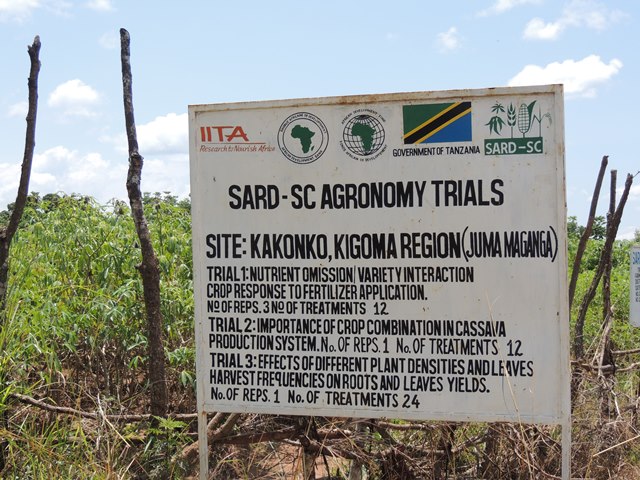 Dr Mboyi Mugendi, a Zonal Research Director at the Lake Zone Agricultural Research and Development Institute (LZARDI) hailed the technologies being piloted by the SARD-SC project saying they had the potential to increase production of cassava, one of the region’s key staple crops, and contribute to efforts to improve food security and reduce poverty in the region.
Dr Mboyi Mugendi, a Zonal Research Director at the Lake Zone Agricultural Research and Development Institute (LZARDI) hailed the technologies being piloted by the SARD-SC project saying they had the potential to increase production of cassava, one of the region’s key staple crops, and contribute to efforts to improve food security and reduce poverty in the region.
“The improved cassava farming technologies being piloted by the project have the potential to significantly boost cassava production in this region and at the same time conserve soil fertility. However, the farmers will also need further training in order to adopt the new technologies being piloted,” said Dr Mugendi.
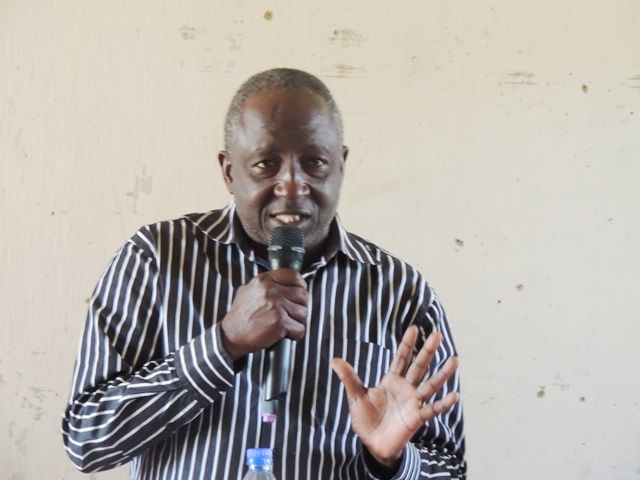
Dr.Mboyi Mugendi from LZARD,explaining on benefit of soil measure before application of any technologies to farmers.
He added: “There is need to create awareness among the farmers on the importance of testing their soils so they can know the deficient minerals and the best crops to grow and fertilizers to use. They also need support in the testing.”
Cassava Mosaic Disease (CMD) and Cassava Brown Streak Disease (CBSD) were identified as major challenges threatening production of cassava in the region. Dr Simon Jeremiah from LZARDI briefed the farmers on the two diseases, their symptoms, and the measures to take to stop their spread.
He also urged farmers to invest in the production of clean seeds and to change to the improved cassava varieties which are tolerant to the two diseases that the project will recommend from its trials.
Mr Christopher Briton Chugwa, Chairman of a farmers group in Kibondo District, said the farmers’ day was important as it exposed farmers to new technologies that had potential to increase yields to motivate them to improve their farming practices.
Miss Veronica Laurence, a farmer from Kiobela Village, said the improved varieties and farming practices being demonstrated by the project had better yields compared to the local varieties and local practices. However she added lack of financial resources was a major barrier to many farmers in adopting the new technologies.
Thanking the project on behalf of the Kakonko District Commissioner, Mrs Tausi Madebo, the Division Officer, said that the technologies demonstrated a lot of potential to boost cassava production. She encouraged farmers to form associations and work as a group to tap into the existing market opportunities for the crop in the area.
Participants at the event included farmers from Kakonko, Kiobela, and Kasanda villages, government officials, and staff from LZARD and IITA.
The SARD-SC is a multinational project led by several CGIAR centers whose objective is to enhance food and nutrition security and contribute to reducing poverty in selected Regional Membership Countries (RMCs) in Africa. Funded by the African Development Bank (AfDB), it focuses on raising the productivity and profitability of cassava, maize, rice, and wheat.
It is being implemented in Benin Republic, Côte d’Ivoire, DR Congo, Eritrea, Ethiopia, Ghana, Kenya, Lesotho, Madagascar, Mali, Mauritania, Niger, Nigeria, Senegal, Sierra Leone, Sudan, Tanzania, Uganda, Zambia, and Zimbabwe.

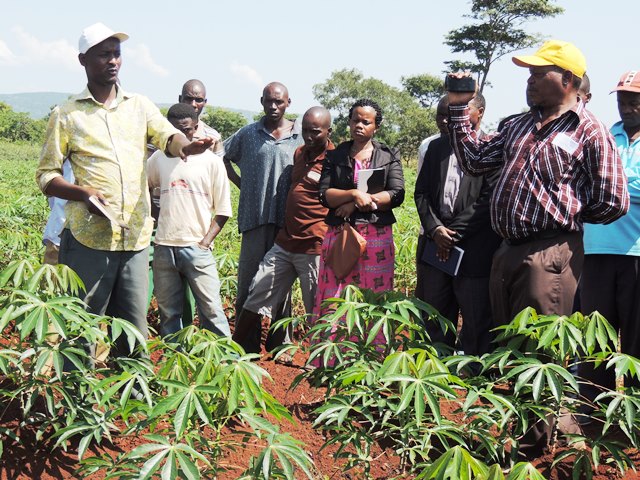
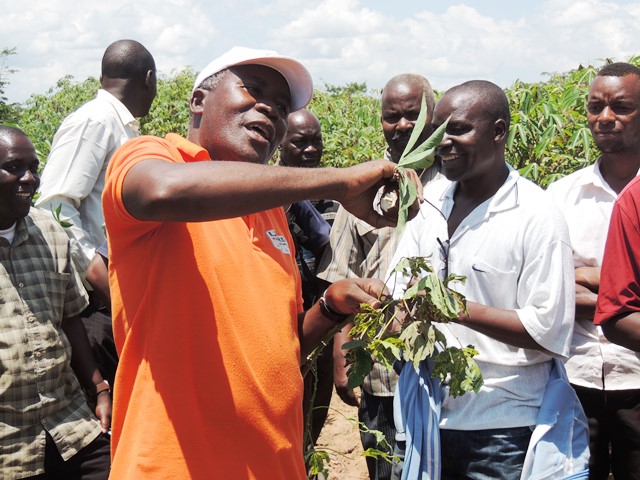
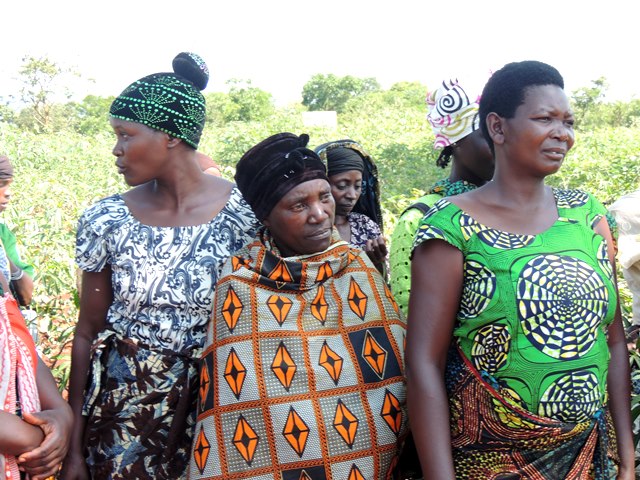

No Comments